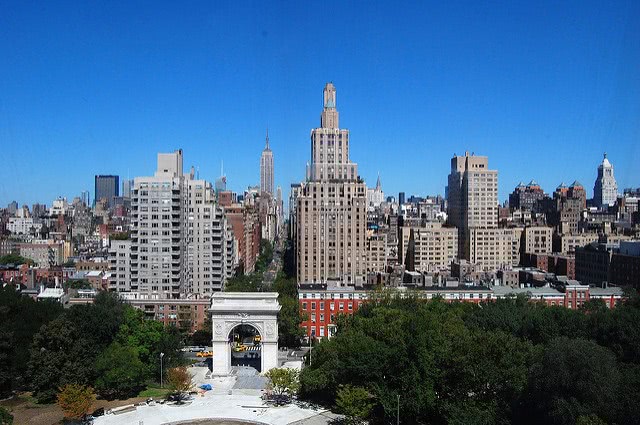
Flickr user Su-Lin
The location of your college can have a major impact on your overall college experience, which is why experts strongly advice students to factor in this aspect when shortlisting their choice of colleges. If most of the schools on your shortlist are colleges in cities, it helps to understand the pros and cons before you send out your applications.
PRO: Exciting cultural opportunities
Colleges in cities offer a wealth of cultural opportunities with plenty of places to visit, events to go and diverse people to interact with. There’s always something going on in any large city. Whether you love spending time by yourself soaking in the peace and quiet of a museum, you prefer rubbing shoulders with other music-lovers at an open-air concert, or you thrive on the loud noisy action of a sporting arena you’ll find endless opportunities to indulge in your favorite pastime in an urban college setting.
PRO: More cultural diversity
Big cities are a melting pot of cultures. As a student in an urban college, you will be exposed to cultural diversity both in your campus as well as the general population. This itself is such a huge learning experience. It can help you be better prepared for a career anywhere in the world.
PRO: Easier and cheaper to get around
The public transportation system in cities is very efficient and all neighborhoods tend to be well connected. You can get to wherever you need to be by bus or train in any big city. This makes it easier and cheaper for you to get around without the expense of having your own car. When you own your own vehicle, paying for gas, parking and maintenance can create havoc with your budget.
PRO: Better internship and career opportunities
Studying in an urban college will give you easier access to more career-boosting experiences such as internships and off-campus cooperative classes. Doing an internship at a top company in your field, can open doors for you in your chosen career after you graduate. With numerous company headquarters located in cities, it is easier to network and make connections with people who matter.
Internship and other similar opportunities are rarer and much more difficult to find in rural settings.
PRO: More dining options
Cities are a hotbed for restaurants and eateries that cater to all tastes and all budgets. You are sure to find plenty of great places to eat well even on a student’s limited budget. It’s nice to know that you have options and are not stuck with the school’s dining options.
CON: Higher cost of living
The cost of living in a big city is typically much higher than the cost of living in a smaller town. This difference in the cost of living becomes even more significant when you have to find your own off-campus accommodation. While you will have many more choices, you will have to pay a high price for this luxury. Especially if your campus is located near one of the larger cities such as New York.
CON: More distractions
The flip side of having so many fun things to do in a big city is that they can also be a big distraction. You need to have the self-discipline to put your academics first. Only indulge in fun times if they do not affect your study time.
CON: Traffic
Cities mean more people, and more people means traffic. If there’s a special event or festival in town, expect it to get even worse. You may or may not be able to escape the worst of it on campus depending on the school’s layout.
Use College Raptor to discover personalized college matches, cost estimates, acceptance odds, and potential financial aid for schools around the US—for FREE!






